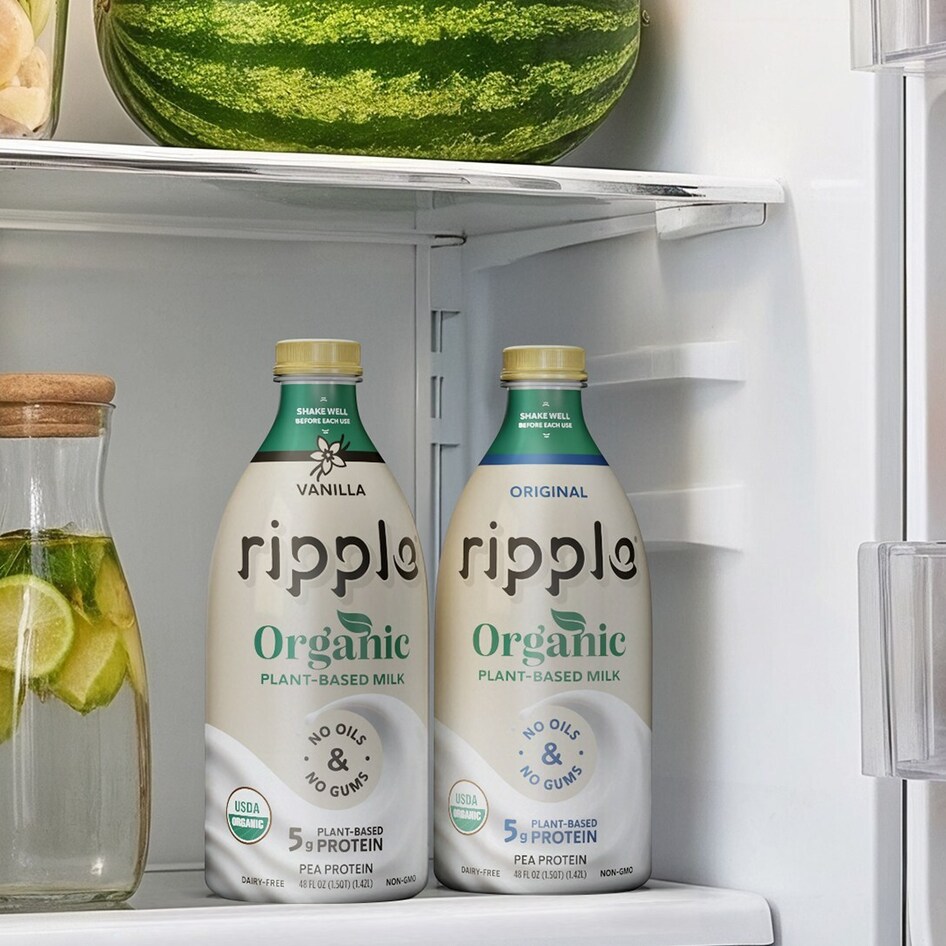For decades, cow’s milk has been a staple on school lunch trays across the US, as routine as math homework or reading time. This tradition dates back to President Harry Truman’s National School Lunch Act of the 1940s, which aimed to fight child hunger and support the dairy industry. But no one in the 1940s likely could have imagined how different the milk landscape would look by 2025.
Today, grocery stores and coffee shops overflow with options made from soy, oats, almonds, and more. These milk alternatives are just as nutritious as cow’s milk, if not more so, especially for those with lactose intolerance or allergies. Yet in many schools, the default remains unchanged. It’s still cow’s milk or nothing. But that could be about to change: if passed, provisions in the Whole Milk for Healthy Kids Act would allow schools to offer nutritious, non-dairy milk options to all students.
 Pexels
Pexels
The move towards nondairy milk in American schools
Right now, the law dictates that schools can only offer a non-dairy alternative, like fortified soy milk, if a child has a note from a doctor explaining why they can’t drink cow’s milk. The provisions would change the rules and allow schools to offer non-dairy options without input from a physician.
According to the Physicians Committee for Responsible Medicine (PCRM), the current rules place an unfair burden on families to prove why their child needs an alternative to cow’s milk. The burden also disproportionately impacts people of color; per Harvard Health, around 50 percent of Hispanic people may have some degree of lactose intolerance. Research also suggests that up to 90 percent of people of Eastern Asian descent and 65 percent of Black Americans may also suffer from the condition.
Beyond health concerns, many children simply dislike cow’s milk or prefer plant-based options for ethical or environmental reasons.
“Putting parents in charge of their children’s nutrition at school is long overdue. As is removing the unnecessary red tape that prevents students from being served healthy non-dairy milks at school,” said Neal Barnard, MD, FACC, PCRM’s president. “If Congress truly wants schools to serve milks that best meet their students’ needs, soy milk and other healthy non-dairy options should be easily available to all who want them.”
School lunches everywhere are becoming more plant-based
If passed, the Whole Milk for Healthy Kids Act would mark another step forward in making school food and drink choices more inclusive and modern. Many districts across the US have already begun embracing change. In 2023, for example, a report from Friends of the Earth found that 68 percent of schools across 25 of California’s largest districts provide plant-based meals at least once a week.
“There are tremendous benefits to plant-based school meals, including increased student inclusion, student health, and climate,” said Nora Stewart, Friends of the Earth’s California Climate-Friendly School Food Program Manager.

BECOME A VEGNEWS VIP: Get exclusive product deals, freebies, and perks galore!
In 2022, legislation was passed in Illinois, mandating that all schools provide a plant-based option for children that meets federal nutrition guidelines. And in New York City, all public school cafeterias currently engage in Plant Powered Friday, which sees a plant-based meal offered as the primary option for students every Friday.
The push for inclusive school meals isn’t limited to the US. New legislation in Spain, for example, requires all public, private, and state-funded schools to offer a plant-based meal choice. In 2023, Uganda opened its first vegan school, in a bid to educate students on the link between animal products and zoonotic diseases.
The benefits of a plant-based, dairy-free school lunch
A growing body of research shows that a plant-based food system can lower the risk of certain diseases (such as bird flu), reduce greenhouse gas emissions, and promote healthier populations. In 2023, for example, a study conducted by the Friedman School of Nutrition Science and Policy at Tufts University found that offering healthier plant-forward school lunches to children could save billions in healthcare costs.
“On average, school meals are healthier than the food American children consume from any other source, including at home, but we’re at a critical time to further strengthen their nutrition,” said the study’s senior author, Dariush Mozaffarian, a cardiologist and Jean Mayer Professor of Nutrition at the Friedman School.
The shift toward plant-based school meals—and equitable access to non-dairy milk—isn’t just about preference. It’s about public health, environmental responsibility, and creating a food system that reflects the needs of today’s students. As more districts, states, and countries embrace these changes, it’s clear that the future of school nutrition is evolving. Passing provisions to the Whole Milk for Healthy Kids Act is another step towards ensuring that no student is left out simply because their dietary needs don’t fit a decades-old norm.
For more plant-based stories like this, read:
JUMP TO ... Latest News | Recipes | Guides | Health | Subscribe









